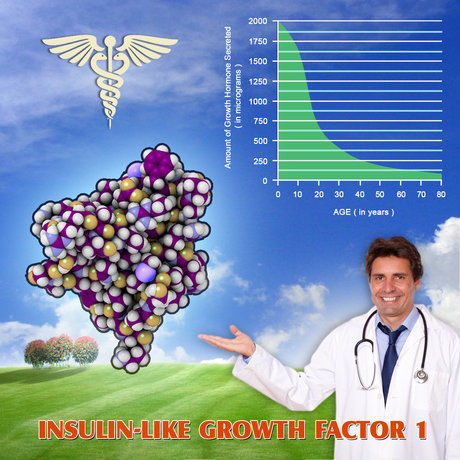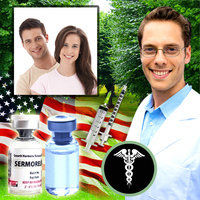Introduction to High Cholesterol
High cholesterol is a common yet serious health concern that affects millions of American men. Characterized by elevated levels of low-density lipoprotein (LDL) or "bad" cholesterol in the blood, this condition significantly increases the risk of cardiovascular diseases, including heart attack and stroke. Understanding the implications of high cholesterol is crucial for men who wish to maintain their health and vitality.
The Prevalence of High Cholesterol Among American Men
Statistics reveal that a substantial number of American men suffer from high cholesterol. According to the Centers for Disease Control and Prevention (CDC), nearly 45% of men have cholesterol levels that are higher than recommended. This prevalence is particularly alarming because high cholesterol often presents no symptoms, making regular screening an essential part of men's health maintenance.
Risk Factors Specific to American Men
Several factors contribute to the high incidence of elevated cholesterol levels in American men. Genetic predisposition plays a role, as does lifestyle. Diets high in saturated fats and trans fats, a lack of physical activity, and smoking are significant contributors. Additionally, age is a factor, with cholesterol levels typically rising as men grow older. Conditions such as diabetes and obesity further exacerbate the risk.
The Cardiovascular Consequences
The primary danger of high cholesterol is its impact on cardiovascular health. LDL cholesterol can accumulate in the walls of arteries, forming plaques that narrow and harden the arteries—a condition known as atherosclerosis. This can lead to coronary artery disease, where the heart's blood supply is compromised, increasing the likelihood of a heart attack. Similarly, when plaques affect the arteries leading to the brain, the risk of stroke is heightened.
Symptoms and Silent Threat
One of the most insidious aspects of high cholesterol is its silence. Many men are unaware of their condition until a cardiovascular event occurs. However, some may experience symptoms related to the complications of high cholesterol, such as chest pain or angina, shortness of breath, and numbness or coldness in extremities due to reduced blood flow.
Screening and Diagnosis
Regular screening is vital for early detection and management of high cholesterol. The American Heart Association recommends that men start cholesterol screening at age 20 and then at least every four to six years thereafter. A simple blood test, known as a lipid panel, measures the levels of LDL, high-density lipoprotein (HDL), and triglycerides in the blood.
Management and Treatment Strategies
Lifestyle modifications are the first line of defense against high cholesterol. A heart-healthy diet rich in fruits, vegetables, whole grains, and lean proteins, coupled with regular exercise, can significantly lower cholesterol levels. For some men, these changes may not be sufficient, and medication such as statins may be necessary to manage their cholesterol effectively.
The Role of Regular Check-ups
Regular medical check-ups are crucial for men to monitor their cholesterol levels and overall health. These visits provide an opportunity to discuss lifestyle changes, medication management, and any new symptoms or concerns. Engaging with healthcare providers can empower men to take control of their health and reduce their risk of cardiovascular disease.
Conclusion: A Call to Action for American Men
High cholesterol is a formidable adversary to the health of American men, but it is not an invincible one. With awareness, regular screening, and proactive management, men can mitigate the risks associated with this condition. By prioritizing their cardiovascular health, American men can lead longer, healthier, and more active lives. It is imperative for men to take this threat seriously and to engage in the necessary steps to safeguard their well-being.
Contact Us For A Fast And Professional Response

- Understanding and Treating Erectile Dysfunction: A Comprehensive Guide for American Men [Last Updated On: March 2nd, 2025] [Originally Added On: March 2nd, 2025]
- Men's Health and Supplements: Benefits, Types, and Safe Usage for American Males [Last Updated On: March 17th, 2025] [Originally Added On: March 17th, 2025]
- Gut Health's Impact on American Males: Microbiome, Mental Health, and Disease Prevention [Last Updated On: March 17th, 2025] [Originally Added On: March 17th, 2025]
- Osteoporosis in Men: Understanding Risks and Enhancing Bone Health Strategies [Last Updated On: March 18th, 2025] [Originally Added On: March 18th, 2025]
- Top Fitness Trends Transforming American Men's Health and Wellness [Last Updated On: March 18th, 2025] [Originally Added On: March 18th, 2025]
- Sleep Apnea in American Men: Symptoms, Risks, and Management Strategies [Last Updated On: March 19th, 2025] [Originally Added On: March 19th, 2025]
- Mental Health Stigma in American Men: Impact and Strategies for Change [Last Updated On: March 20th, 2025] [Originally Added On: March 20th, 2025]
- Understanding and Overcoming Male Infertility: Causes, Diagnosis, and Treatment Options [Last Updated On: March 20th, 2025] [Originally Added On: March 20th, 2025]
- Meditation's Rise in U.S.: Enhancing Men's Mental Health and Resilience [Last Updated On: March 21st, 2025] [Originally Added On: March 21st, 2025]
- Stress and Heart Health in American Men: Impacts and Management Strategies [Last Updated On: March 21st, 2025] [Originally Added On: March 21st, 2025]
- Hydration's Vital Role in American Men's Health and Performance [Last Updated On: March 21st, 2025] [Originally Added On: March 21st, 2025]
- Exercise: A Vital Strategy for American Men Managing Diabetes [Last Updated On: March 21st, 2025] [Originally Added On: March 21st, 2025]
- Physical Activity: A Vital Tool for Cancer Prevention in American Men [Last Updated On: March 21st, 2025] [Originally Added On: March 21st, 2025]
- Strength Training Benefits for American Men: Physical, Mental, and Metabolic Health [Last Updated On: March 21st, 2025] [Originally Added On: March 21st, 2025]
- Work-Life Balance: Key to American Men's Health and Well-being [Last Updated On: March 22nd, 2025] [Originally Added On: March 22nd, 2025]
- Effective Strategies for American Men to Quit Smoking and Improve Health [Last Updated On: March 22nd, 2025] [Originally Added On: March 22nd, 2025]
- Understanding and Managing Allergies in Men: Strategies for Health and Well-being [Last Updated On: March 22nd, 2025] [Originally Added On: March 22nd, 2025]
- Obesity and Cancer Risks in American Men: Insights and Prevention Strategies [Last Updated On: March 23rd, 2025] [Originally Added On: March 23rd, 2025]
- Swimming Boosts Men's Health: Cardiovascular, Muscle, Weight, and Mental Benefits [Last Updated On: March 24th, 2025] [Originally Added On: March 24th, 2025]
- Promoting Men's Mental Health: The Importance of Regular Screening in America [Last Updated On: March 24th, 2025] [Originally Added On: March 24th, 2025]
- Managing Anxiety in American Men: Tools, Techniques, and Holistic Approaches [Last Updated On: March 24th, 2025] [Originally Added On: March 24th, 2025]
- Effective Depression Treatment Options for American Men: Therapy, Medication, and Lifestyle [Last Updated On: March 24th, 2025] [Originally Added On: March 24th, 2025]
- Tai Chi: Enhancing Health and Wellness for American Men [Last Updated On: March 24th, 2025] [Originally Added On: March 24th, 2025]
- Alcohol's Impact on Liver Health: A Guide for American Males [Last Updated On: March 24th, 2025] [Originally Added On: March 24th, 2025]
- Varicose Veins in American Men: Causes, Symptoms, and Treatment Options [Last Updated On: March 25th, 2025] [Originally Added On: March 25th, 2025]
- Asthma in Men: Symptoms, Management, and Lifestyle Impact [Last Updated On: March 25th, 2025] [Originally Added On: March 25th, 2025]
- Caffeine's Multifaceted Impact on American Men's Health: Benefits and Risks [Last Updated On: March 25th, 2025] [Originally Added On: March 25th, 2025]
- Mental Health Days: Essential for American Men's Well-Being and Productivity [Last Updated On: March 25th, 2025] [Originally Added On: March 25th, 2025]
- Sleep and Weight Management: A Guide for American Males [Last Updated On: March 25th, 2025] [Originally Added On: March 25th, 2025]
- Gout in American Men: Causes, Symptoms, and Effective Management Strategies [Last Updated On: March 25th, 2025] [Originally Added On: March 25th, 2025]
- Dietary Strategies for Enhancing Prostate Health in American Men [Last Updated On: March 25th, 2025] [Originally Added On: March 25th, 2025]
- Kidney Stones in American Men: Prevention, Management, and Treatment Strategies [Last Updated On: March 25th, 2025] [Originally Added On: March 25th, 2025]
- Plant-Based Diets: Health Benefits for American Men [Last Updated On: March 26th, 2025] [Originally Added On: March 26th, 2025]
- Dietary Fiber: Essential for Digestive Health, Weight Management, and Disease Prevention in Men [Last Updated On: March 26th, 2025] [Originally Added On: March 26th, 2025]
- Eye Health Crucial for American Men: Exams Detect Early Disease Signs [Last Updated On: March 26th, 2025] [Originally Added On: March 26th, 2025]
- Dental Health's Crucial Role in Men's Overall Well-being and Disease Prevention [Last Updated On: March 26th, 2025] [Originally Added On: March 26th, 2025]
- Hemorrhoids in Men: Causes, Symptoms, and Effective Management Strategies [Last Updated On: March 26th, 2025] [Originally Added On: March 26th, 2025]
- Stroke Risks in American Men: Understanding and Prevention Strategies [Last Updated On: March 26th, 2025] [Originally Added On: March 26th, 2025]
- Annual Physicals: Vital for Men's Health and Disease Prevention in the U.S. [Last Updated On: March 26th, 2025] [Originally Added On: March 26th, 2025]
- Men's Mental Health in the Workplace: Challenges and Strategies for Support [Last Updated On: March 27th, 2025] [Originally Added On: March 27th, 2025]
- Stress and Digestive Health in American Males: Insights and Management Strategies [Last Updated On: March 27th, 2025] [Originally Added On: March 27th, 2025]
- Cycling Benefits for American Men: Health, Fitness, and Well-being [Last Updated On: March 27th, 2025] [Originally Added On: March 27th, 2025]
- Seasonal Affective Disorder in American Men: Symptoms, Impact, and Holistic Treatment Approaches [Last Updated On: March 28th, 2025] [Originally Added On: March 28th, 2025]
- Social Connections: Enhancing Mental Health Resilience in American Men [Last Updated On: March 28th, 2025] [Originally Added On: March 28th, 2025]
- Proactive Health Strategies for American Men: Screenings, Lifestyle, and Support [Last Updated On: March 29th, 2025] [Originally Added On: March 29th, 2025]
- Pilates Benefits for American Men: Core Strength, Flexibility, and Mental Health [Last Updated On: March 29th, 2025] [Originally Added On: March 29th, 2025]
- Hiking Benefits for Men: Enhancing Physical, Mental, and Social Health [Last Updated On: March 29th, 2025] [Originally Added On: March 29th, 2025]
- Arthritis in American Men: Prevention, Management, and Mental Health Strategies [Last Updated On: March 30th, 2025] [Originally Added On: March 30th, 2025]
- Insomnia's Impact on Men's Health: Causes, Strategies, and Solutions [Last Updated On: March 30th, 2025] [Originally Added On: March 30th, 2025]
- Diet and Heart Health: Essential Guide for American Men [Last Updated On: March 31st, 2025] [Originally Added On: March 31st, 2025]
- Pollution's Impact on American Men: Health Risks and Preventive Strategies [Last Updated On: March 31st, 2025] [Originally Added On: March 31st, 2025]
- Migraines in Men: Symptoms, Triggers, and Effective Management Strategies [Last Updated On: March 31st, 2025] [Originally Added On: March 31st, 2025]
- Antioxidants: Vital for American Men's Health and Disease Prevention [Last Updated On: April 1st, 2025] [Originally Added On: April 1st, 2025]
- Men's Mental Health: Breaking Stigma Through Education and Support [Last Updated On: April 4th, 2025] [Originally Added On: April 4th, 2025]
- Rowing: A Comprehensive Fitness Solution for American Men's Health [Last Updated On: April 5th, 2025] [Originally Added On: April 5th, 2025]
- Martial Arts: Enhancing Men's Health and Well-being in America [Last Updated On: April 7th, 2025] [Originally Added On: April 7th, 2025]
- Alcohol Use and Mental Health: A Critical Issue Among American Males [Last Updated On: April 9th, 2025] [Originally Added On: April 9th, 2025]
- Managing Panic Attacks: Strategies and Insights for American Men's Health [Last Updated On: April 9th, 2025] [Originally Added On: April 9th, 2025]
- Skin Cancer Risks and Prevention Strategies for American Men [Last Updated On: April 9th, 2025] [Originally Added On: April 9th, 2025]
- Community Influence on Men's Health: Social Ties, Resources, and Cultural Factors [Last Updated On: April 9th, 2025] [Originally Added On: April 9th, 2025]
- Back Pain in American Men: Causes, Prevention, and Holistic Management Strategies [Last Updated On: April 9th, 2025] [Originally Added On: April 9th, 2025]
- Men's Hearing Health: Risks, Prevention, and Technological Solutions [Last Updated On: April 11th, 2025] [Originally Added On: April 11th, 2025]
- Technology's Impact on Men's Health: Fitness, Telemedicine, and Mental Wellness in the U.S. [Last Updated On: April 11th, 2025] [Originally Added On: April 11th, 2025]
- IBS in American Men: Symptoms, Diagnosis, and Management Strategies [Last Updated On: April 11th, 2025] [Originally Added On: April 11th, 2025]
- Running's Multifaceted Health Benefits for American Men: A Comprehensive Guide [Last Updated On: April 12th, 2025] [Originally Added On: April 12th, 2025]
- Essential Vitamins for American Men's Health and Vitality [Last Updated On: April 13th, 2025] [Originally Added On: April 13th, 2025]
- Obesity and Diabetes in American Men: Risks, Impacts, and Management Strategies [Last Updated On: April 13th, 2025] [Originally Added On: April 13th, 2025]
- Transforming Men's Health: Tailored Mental Health Awareness Campaigns for American Men [Last Updated On: April 14th, 2025] [Originally Added On: April 14th, 2025]
- Diet and Mental Health: Nutritional Strategies for American Males' Well-being [Last Updated On: April 15th, 2025] [Originally Added On: April 15th, 2025]
- CrossFit: Boosting American Men's Health and Fitness Holistically [Last Updated On: April 16th, 2025] [Originally Added On: April 16th, 2025]
- Mental Health First Aid: Empowering American Men to Overcome Stigma and Seek Support [Last Updated On: April 16th, 2025] [Originally Added On: April 16th, 2025]
- Joint Pain in Men: Causes, Prevention, and Management Strategies [Last Updated On: April 17th, 2025] [Originally Added On: April 17th, 2025]
- Basketball's Impact on Men's Health: Fitness, Mental Well-being, and Community Benefits [Last Updated On: April 18th, 2025] [Originally Added On: April 18th, 2025]
- Soccer's Impact on Men's Health: Cardiovascular, Mental, and Physical Benefits [Last Updated On: April 19th, 2025] [Originally Added On: April 19th, 2025]
- Lung Cancer in American Men: Risks, Prevention, and Early Detection Strategies [Last Updated On: April 19th, 2025] [Originally Added On: April 19th, 2025]
- Family Support Enhances Health and Wellbeing in American Men: A Comprehensive Analysis [Last Updated On: April 19th, 2025] [Originally Added On: April 19th, 2025]
- Socioeconomic Factors Shaping Health Outcomes for American Men: Challenges and Strategies [Last Updated On: April 21st, 2025] [Originally Added On: April 21st, 2025]
- Sleep Quality's Impact on Health and Productivity in American Men: A Multivariate Analysis [Last Updated On: April 22nd, 2025] [Originally Added On: April 22nd, 2025]
- Prostate Cancer Screening Enhances Early Detection and Survival in American Men: A Retrospective Study [Last Updated On: April 23rd, 2025] [Originally Added On: April 23rd, 2025]
- Rising Mental Health Awareness Among U.S. Males: Breaking Stigma and Fostering Support [Last Updated On: April 23rd, 2025] [Originally Added On: April 23rd, 2025]

















